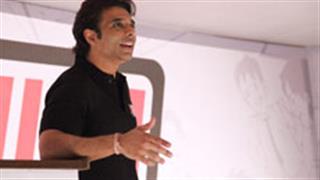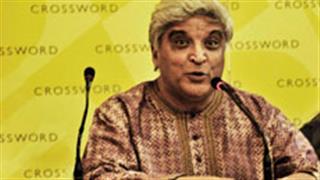In his just-released autobiography "Dilip Kumar: The Substance And The Shadow", Kumar, 91, reveals details about his relationship with Madhubala that continues to intrigue cinema fans even today. The screen icon fondly remembers Madhubala as a great artiste and "vivacious and spirited person" with whom he attained an ease while working in 1951 film "Tarana".
"I must admit that I was attracted to her (Madhubala) both as a fine co-star and as a person who had some of the attributes I hoped to find in a woman at that age and time... She, as I said earlier, was very sprightly and vivacious and, as such, she could draw me out of my shyness and reticence effortlessly," Kumar says in the book, published by Hay House.
Their pairing in K Asif's "Mughal-E-Azam" made headlines because of rumours about their emotional involvement, which made the director very happy. Madhubala confided to Asif about her feelings for Kumar and the director encouraged her. But unfortunately things soured badly during the long production of the classic. "I sensed, Asif was seriously trying to mend the situation for her when matters began to sour between us, thanks to her father's attempt to make the proposed marriage a business venture," Kumar recalls.

Their relationship worsened during the shooting of the film. Kumar reveals that the feather scene, described as one of the most sensuous moments in Hindi cinema, was shot when they had stopped speaking to each other.
"The outcome was that halfway through the production of 'Mughal-e-Azam' we were not even talking to each other. The classic scene with the feather coming between our lips, which set a million imaginations on fire, was shot when we had completely stopped even greeting each other," Kumar writes. The actor says the tribute for that scene should go to "the artistry of two professionally committed actors" for keeping aside their personal differences to carry out the vision of the director.
Madhubala's father Ataullah Khan had his own production company and he was only to glad to have two stars under the same roof.
Madhubala thought things would get sorted once they were married but Kumar was not ready to surrender his career to someone else's "dictates and strategies". Kumar felt he was letting himself into the relationship on the rebound than out of a genuine need for a permanent companion. "The scenario was not very pleasant and it was heading inevitably to a dead end.
In the circumstances, therefore, it seemed best that we did not decide to marry or even give each other a chance to rethink," he says. "... I did not want to share a lifetime with someone whose priorities were different from mine.
Besides, she certainly would have been drawn to other colleagues in the profession, as I found out, and they to her but that wasn't an issue because I was myself surfacing from an emotional upheaval at that point of time." He says he had "many upfront discussions with her father and she, not surprisingly, remain neutral and unmoved by my dilemma. The scenario was not very pleasant and it was heading inevitably to a dead end.

"I was truly relieved when we parted ways because I had also begun to get an inkling that it was all very well to be working together as artistes but in marriage it is important for a woman to be ready to give more than receive," he writes. Kumar also talks about his closeness with Kamini Kaushal, whose real name was Uma Kashyap. Kaushal was married at that time.
They worked together in "Shaheed", "Nadiya Ke Paar" and "Shabnam". "Stardom bothered me more than it pleased me and I guess I was drawn more intellectually than emotionally to Uma, with whom I could talk about matters and topics that interested me outside the purview of our working relationship. If that was love, may be it was. I don't know and I don't think it matters any more," he recalls.




















